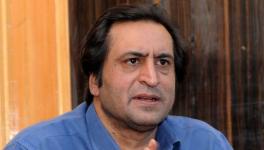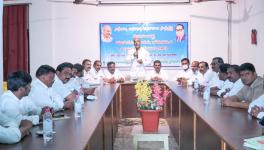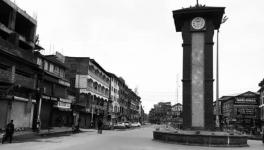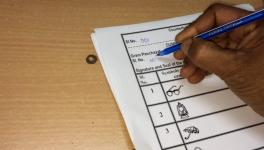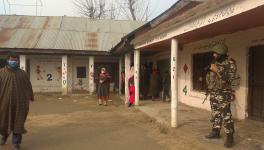J&K Holds Maiden District Development Council Polls; West Pak Refugees Vote for First Time
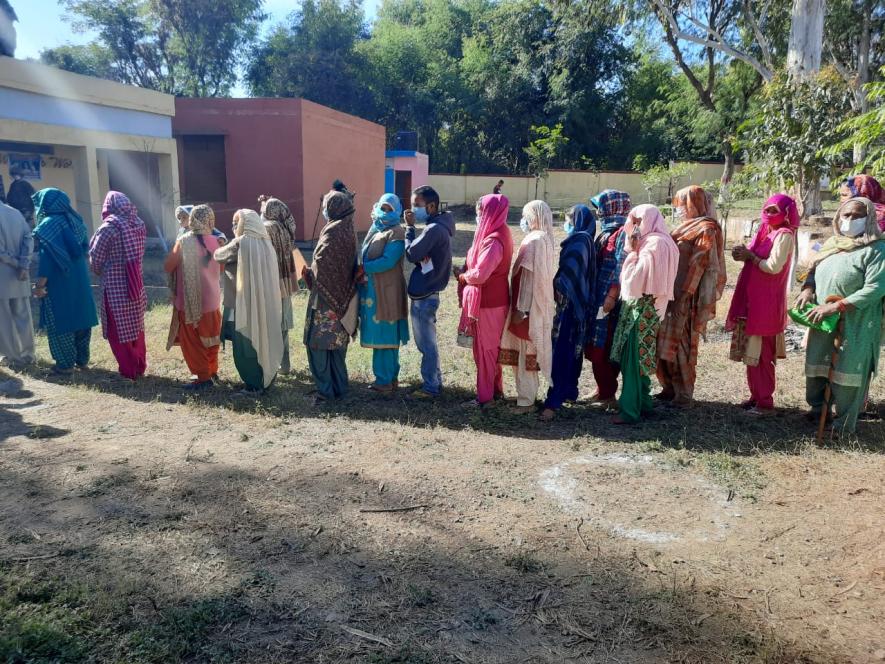
In a major electoral activity after the abrogation of Article 370 last year in August, people in Jammu and Kashmir exercised their right to vote on Saturday in the first phase of the maiden District Development Council (DDC) elections in the new Union Territory.
There were nearly seven lakh eligible voters in the election for the DDC, which is the third tier of the Panchayti Raj system in Jammu and Kashmir (J&K). Alongside this, the voting for by-polls to elect Panches and Sarpanches were also held on Saturday.
Out of the 43 constituencies that went to polls today, 124 candidates, including 30 women, contested from 18 constituencies of Jammu district. Another 172 candidates, including 59 women, contested from 25 seats in Kashmir. The polling commenced as per the scheduled time of 7am to 2 pm.
Elaborate security arrangements with 145 companies of CRPF and UP police were put in place ahead of the polling while maintaining the COVID-19 protocols. Before queuing up for voting, temperature of the voters was being checked and hands were being sanitised. As per the officials, over 39.69 voting percentage has been recorded till 1pm.
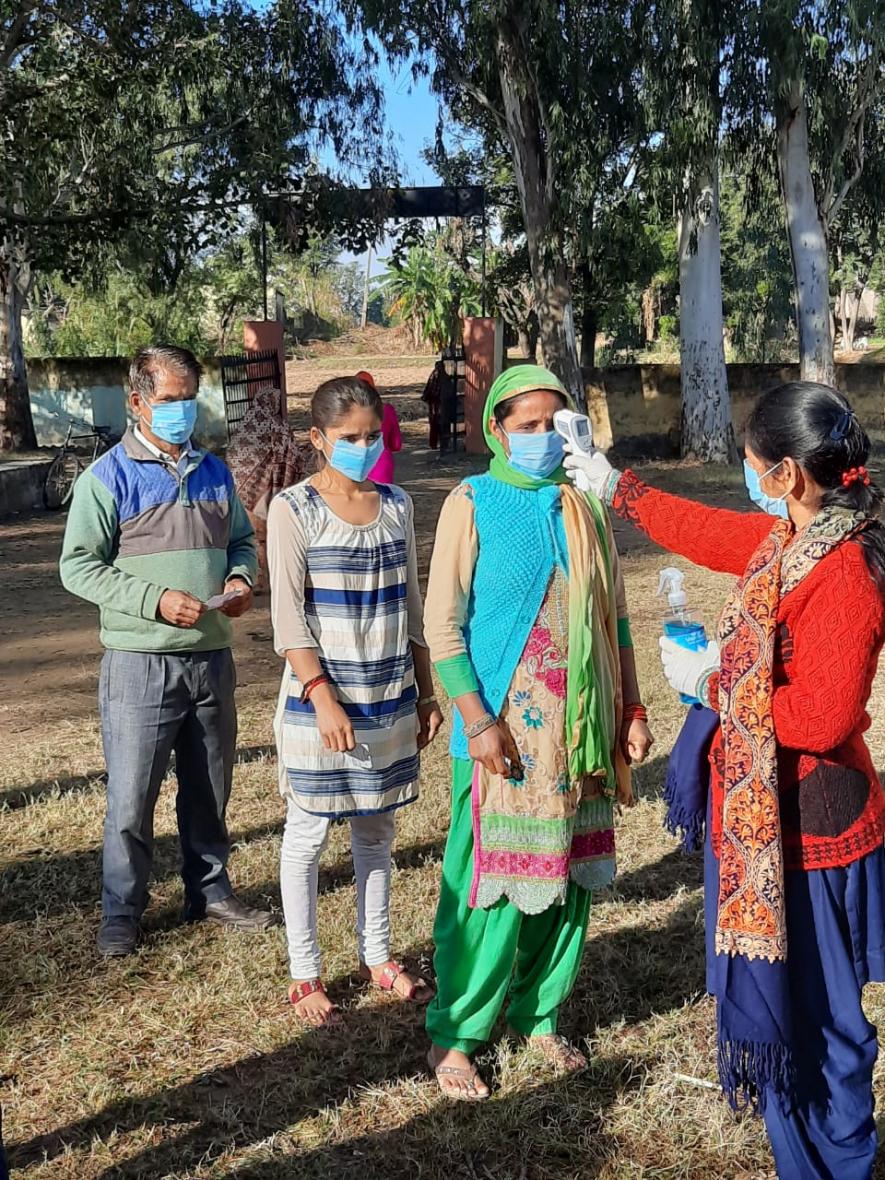
In Jammu, enthusiasm was palpable among West Pakistan Refugees (WPR) who voted for the first time. In the Kothgari panchayat of Akhnoor tehsil, 35 kilometres from Jammu, Mangat Ram, 31, came dressed in wedding clothes to cast his first vote on the day of his marriage.
"In an hour, my marriage ceremony would start but I was very excited to vote first. I don’t know who to vote for. I am voting because I have never voted in life,” he said.
Kothgari is home to around 25 WPR families. There are around 22,000 registered WPR families, most of them Dalits who moved to India after partition. Earlier, they were not allowed to vote in the Assembly and local body polls – which was termed as a failure of regional political parties in power – the National Conference and People’s Democratic Party. This was taken up by the Bharatiya Janata Party (BJP) as one of the reasons behind the abrogation of Article 370, which gave J&K a special status. NewsClick had earlier reported on how Dalits voters were divided over participation in the polls owing to the administrative neglect they have faced.
The road leading to Kothgari is narrow, battered and dilapidated. Rakesh Kumar, one of the four Panches, said that there is no dispensary in the area including other basic amenities.
"In case of emergency, we have to rush to Akhnoor. We have raised the issue so many times and submitted all the documents, yet no action has been taken,” Kumar said.
Kumar added that there are only two Anganwadi centres for four wards separated by a distance of 5 kms each and there is no staff available.
"Children have no access to mid-day meals and we had raised these demands in B2V programme, but nothing happened." NewsClick has earlier reported on how B2V or Back to Village programme had been a failure in Jammu.
But Kumar, who was standing in the queue to cast vote, believes that voting is his right for making a change. "Voting is my faith in the Constitution of India. So, every time I vote, I carry a streak of faith in my heart."
In Kainkjagir Panchayat of Sohal village, 5 kms from Akhnoor, the villagers appeared exhausted as they queued up in the line to cast their votes. A demure Simron Devi,80, said that she is voting because everyone else is.
“I know nothing is going to change but why stand out among villagers and appear as an outcast. In last 80 years of my life, nothing has changed, what will change now?” she asked.
In these two panchayats that NewsClick visited, what was pertinent to note was that the voters were oblivious of what they were voting for. When asked about the DDC elections, villagers appeared bewildered.
“I have no idea what DDC polls means. I am here to vote against corruption and for development,” said 50-year-old Tehseem Singh.
It is important to mention that the deepening religious divide among Hindu and Muslim communities is visible on the ground and is expected to affect the votes. In the two Hindu-dominated villages that NewsClick visited today, while voters lamented about lack of resources and development, they said they would vote for the Hindu candidates.
“Aesi Kaakh nahi labba magar vote te Hindu Modi ko ee devenge (We have received nothing but we will vote for Hindu Modi only).”
The Chenab valley of Jammu division saw voters flocking the polling booth in good numbers. In Chenab valley, which includes the districts of Doda, Ramban, and Kishtwar, the votes are divided between PAGD, BJP and Congress. As per the sources, majority of Muslims are voting for PAGD while Hindu votes are divided between the BJP and the Congress.
“Muslims will vote for PAGD this time because of the simmering anger they have against the Centre. That is going to work for PAGD,” said a local requesting anonymity.
Besides, the by-elections for 1,088 sarpanch and more than 12,000 panch positions had also taken place simultaneously. Meanwhile, in border areas, alternative arrangements have been made for polling stations in case of any eventuality.
Get the latest reports & analysis with people's perspective on Protests, movements & deep analytical videos, discussions of the current affairs in your Telegram app. Subscribe to NewsClick's Telegram channel & get Real-Time updates on stories, as they get published on our website.









